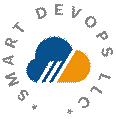
Introduction
As businesses continue to harness the power of big data, the need for effective data governance becomes increasingly paramount. Cloud-based data lakes offer immense potential for storing, processing, and analyzing vast amounts of data. However, ensuring proper governance within these environments presents unique challenges. In this blog post, we'll explore innovative approaches to data governance in cloud-based data lakes, highlighting how Smart DevOps LLC can help businesses navigate this complex landscape.🛡️✨
The Importance of Data Governance in Cloud-Based Data Lakes
Data lakes serve as centralized repositories for diverse data types, enabling organizations to derive valuable insights. However, without robust governance mechanisms in place, data lakes can quickly become unwieldy and prone to issues such as data breaches, compliance violations, and inaccurate analyses. Effective data governance is essential for maintaining data integrity, ensuring regulatory compliance, and fostering trust in the data.
Innovative Approaches to Data Governance
Automated Metadata Management: Implementing automated metadata management solutions can streamline data discovery and lineage tracking within cloud-based data lakes. By automatically capturing and cataloging metadata, organizations gain visibility into data sources, usage patterns, and dependencies, facilitating better governance and compliance efforts.
Machine Learning-Powered Data Quality Monitoring: Integrating machine learning algorithms for data quality monitoring enables proactive identification and remediation of data quality issues within the data lake. By continuously analyzing data patterns and anomalies, organizations can maintain data accuracy and reliability, thereby enhancing the effectiveness of their data governance initiatives.
Blockchain-Based Data Provenance: Harnessing blockchain technology for data provenance offers immutable and transparent tracking of data lineage and transactions within the data lake. By recording every data interaction on a decentralized ledger, organizations can establish a trustworthy audit trail, ensuring data integrity and accountability throughout the data lifecycle.
Dynamic Data Masking: Implementing dynamic data masking techniques allows organizations to obfuscate sensitive data in real-time based on user access privileges and contextual factors. By dynamically masking sensitive information such as personally identifiable information (PII) or financial data, organizations can protect data privacy while enabling legitimate data usage for analysis and reporting.
Data Lineage Visualization: Utilizing advanced data lineage visualization tools enables organizations to gain a comprehensive understanding of data flows, transformations, and dependencies within the data lake. Interactive visualizations help stakeholders visualize complex data lineage relationships, identify potential bottlenecks or data quality issues, and make informed decisions regarding data governance and management strategies.
How Smart DevOps LLC Can Help🌐
At Smart DevOps LLC, we specialize in providing AWS Cloud Consulting and Azure Cloud Consulting services tailored to meet the unique needs of our clients. Our team of cloud experts possesses extensive experience in architecting, implementing, and optimizing cloud-based data lakes while ensuring robust data governance practices. Whether you're looking to design a new data lake architecture or enhance the governance of your existing environment, we're here to guide you every step of the way.
Conclusion:
Effective data governance is essential for maximizing the value of cloud-based data lakes while mitigating associated risks. By embracing innovative approaches to data governance, organizations can establish a foundation of trust, integrity, and compliance within their data lakes. With Smart DevOps LLC as your trusted partner, you can unlock the full potential of your data assets while ensuring the security and reliability of your cloud-based data infrastructure.
